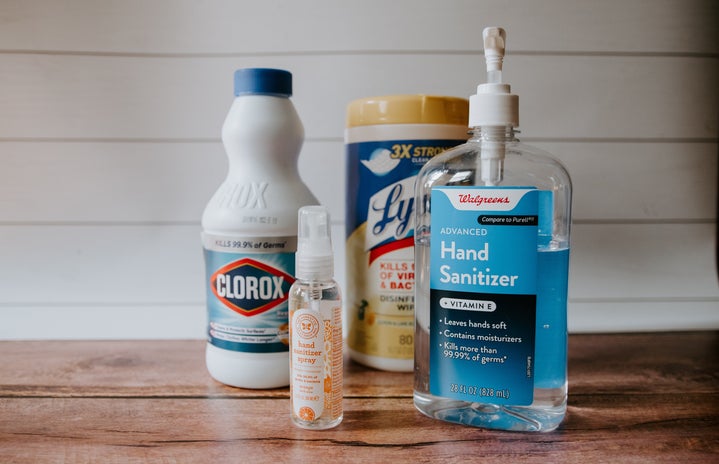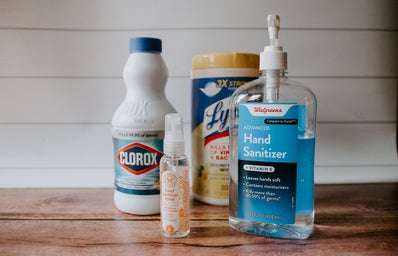This week when trying to come up with a subject to write about, I was really trying to stay away from the COVID-19 topic. Lately, that’s all I have been hearing about, whether it be the Prime Minister or the Premier having daily announcements, or going into grocery stores or gas stations and having a plastic barrier between the cashier and I. Don’t get me wrong, I think spreading awareness of the dangers and prevention methods is very important, especially with such an unpredictable and new disease, but it would be nice to change the topic.
So, I went to look at TEDx Talks on Youtube for some inspiration for this article and in my personal life. As I was scrolling through the different videos available, one popped up with the title “Coronavirus is Our Future.” I thought to myself, “No way, this virus cannot be it for us. I cannot deal with isolating and social distancing forever. I can barely last for one week”, so I decided to watch it.
Alanna Shaikh is the presenter for this TEDx Talk, and she starts talking about her credentials relating to the health industry. She then moves on to explain exactly what the types of Coronavirus diseases have been in the past, and specifically what COVID-19 is. After all of the medical technicality is out of the way, she says: “There’s going to be more outbreaks, and there’s going to be more epidemics. That’s not a maybe; that’s a given. And it’s a result of the way that we, as human beings, are interacting with our planet.” That stood out to me the most because although diseases and illnesses are inevitable amongst living beings, there are also things that we, as humans, can do to help contain the spread and help treat it.
Further, if we don’t like what we see now, we actually have the power to prevent such a pandemic from happening again in the future. Shaikh outlined two major areas in which humans can help so that when the next outbreak hits us again, it does not take three months for the world to take it seriously. The first point was about the importance of equity between countries around the world, to help them expand their health care systems to be prepared for any kind of outbreak. The second point was about the way we are treating the Earth and the realization that we are hurting the animals that share the space with us, which we ultimately eat.
The first point of improving global health care systems is, in my opinion, a dream. It is not unrealistic, nor unimportant, but I think that it has been a great global goal that has not yet been even close to accomplishing. Countries in Africa, as Alanna Shaikh was saying, can identify diseases quickly, like Sierra Leone did when there was an Ebola outbreak. But their resources are limited when it comes to treating the disease. So, what good is knowing something is wrong, but not being able to do anything about it?
Relating to the COVID-19 pandemic, there has been a cry for help coming from doctors around the world that there is a shortage of medical supplies like gloves, gowns, face masks, and ventilators. Doctors who are treating patients are now becoming the patients themselves, with deaths amongst the medical practitioner, how are we non-medical folks supposed to help? Countries need to do better, and I am sure that once COVID-19 is contained, and countries are on the road to recovery, the world will never forget what happened. Hopefully, health care systems will be over-appreciated, there will be an overstock of supply when we need it, and our outpour to help others will continue.
The second point that she made was the way we are treating our planet, and by consequence, how we treat the animals we ultimately eat. Specifically talking about this COVID-19 pandemic, by now, we all know it started through the contact of a bat. In Western society, eating a bat is probably unheard of, and disgusting, but around the world, it might be more common than we think. It wasn’t even the fact that a bat was eaten because in China wild animals are seen as a delicacy, but it was how the animal was handled before it was eaten. It’s not just bats that we have heard of being a problem, we have seen how pigs also can transmit their illnesses, and even how cows and chickens can affect us because of what we feed them, and what their environment is like. This all means if we want to continue being omnivores, we need to treat our planet better, consequently treating our animals better.
There have been numerous articles stating that cameras from space have pointed out the reduction in pollution since the world was forced to stop because of the pandemic. When this is all over, the world will obviously go back to full force, with people going back to work, industries flourishing again, and people will continue to travel. I am sure that after being in isolation for a long time, we dream of having these normal moments again, but we must do it carefully and in moderation. The way we handle our food source clearly has a direct impact on us, but a global medical pandemic should not have to happen for us to be more conscious about this.
There is no exact date for when this whole nightmare will be over, but by the looks of it, social isolation will be our new norm for quite some time. For me being in the present and taking all prevention measures seriously is important. But, I think we also need to start looking into the future and trying to see what needs to change when this is over. We need to learn from this situation, help each other and make sure that we are equipped for another global pandemic. Like Alanna Shaikh said, we will definitely have another outbreak soon, there’s no question about it, but with the proper equipment, knowledge and resources, we should be able to have better control of preventing a pandemic.
Resource:
https://www.youtube.com/watch?v=Fqw-9yMV0sI



